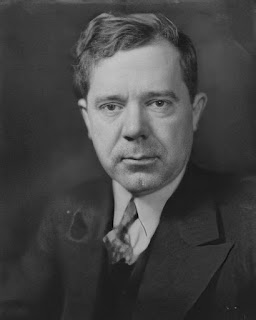What Is a 'Populist,' Anyway?
Tuesday, August 22, 2023
Populist.
Everyone uses the term and, unfortunately, politicians fitting the description are seeing success the world over. The term gets sprinkled around news reports like croutons on a salad all the time.
But I can't remember anyone giving a definition of "populism." From my view, it's one of those terms everyone seems to understand, but which raises questions as soon as one tries to pin it down: It cuts across left and right, so it doesn't seem to be an "ism" in the sense of being a specific set of beliefs and arguments one can wrap one's head around. But you can know a populist when you see one.
The dictionary isn't much help. Here's what Google belched forth:
a political approach that strives to appeal to ordinary people who feel that their concerns are disregarded by established elite groups.A political approach ... to achieve what, exactly? And what counts as an "establishment" or an "elite?" For what reasons -- good or bad -- would "ordinary people" feel that their concerns are ignored? Do they have a point, and would 'populism' actually help them? Why or why not?
Believe it or not, it only occurred to me this morning to see what, if anything, Ayn Rand might have said about populism.
I was not disappointed:
Freshen up the above by swapping out Bernie Sanders for George McGovern and Donald Trump for George Wallace (as I did some time back in a different context).The commentators regard [George McGovern and George Wallace] as opposites -- as the extremes of left and right -- and are shocked by the extent of Mr. Wallace's popularity. Mr. McGovern is the consistent representative of the New Left. But can one call Mr. Wallace a representative of the right? Yes -- symbolically and journalistically. No -- in fact, if by "right" one means capitalism. Mr. Wallace is a "conservative," which means a statist; and a "populist," which means an old-fashioned, anti-intellectual, non-ideological collectivist. He can match any liberal in attacks on the rich and in appeals to the "little fellows." He is behind the times: he sounds like a New Dealer of the 1930s. But he has the courage to attack some of the modern outrages which the Establishment protects by uncritical silence: welfare, busing, foreign aid, the U.N., the appeasement of Soviet Russia. People are relieved to hear these attacks, which are long overdue. ("The Dead End," in The Ayn Rand Letter, vol. 1, no. 20, July 3, 1972)
It is no accident that the state that elected Huey Long during the Depression is Trump Country today. (Image by U. S. Senate Historical Office, via Wikimedia Commons, public domain.)
Oh, and keep reading past the bold for what could be a preemptive review/account for the popularity of "Rich Men North of Richmond."
In terms of a coherent belief system, there is no "there" there in populism, at least beyond what is already "out there" in the culture (and is likely at the root of the frustrations felt by those permitting themselves to fall under the spell of a populist). There is just a willingness on the part of a populist to channel anger and frustration -- without challenging any basic premises -- in the quest for political power.
The people so upset at the "establishment" (as they put it in the sixties) or the "elites" (as they put in now) that they would blindly revolt this way will pay for such blindness if they ever get their way. Their payment will be to get what they want "good and hard" -- when they learn that the primary goal of their supposed champion is political power and its trappings.
-- CAV


No comments:
Post a Comment